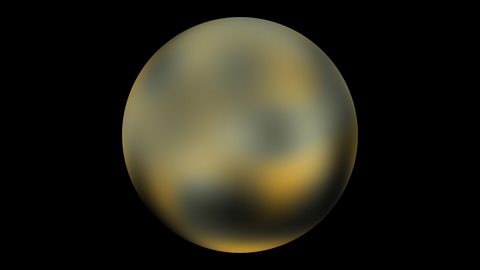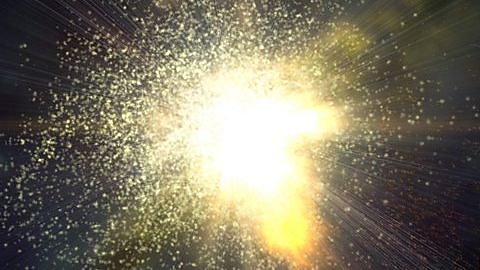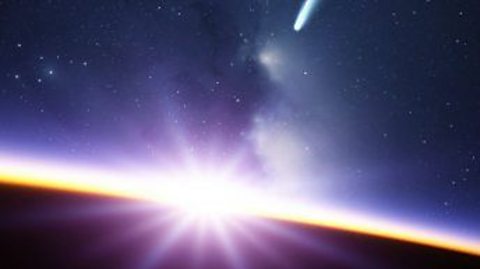An unbreakable law
Follow this journey to the end and you can lay waste to the Universe in just a few seconds. ItÔÇÖs all to do with the second law of thermodynamics, which was framed in the mid-19th Century.
The second law was a major step forward for science, but it also felt like one giant leap backwards for humankind. It brought with it some very unpleasant news. It involved a quantity new to science called ÔÇśentropyÔÇÖ and predicted nothing less than something called the 'heat death' of the Universe. As TS Eliot wrote: ÔÇťThis is the way the world ends, not with a bang but a whimper.ÔÇŁ
This is where our current understanding of the Universe stands, but thereÔÇÖs no need to worry. Heat death wonÔÇÖt happen for trillions of years, which gives us plenty of time to get to grips with the second law, one of the most important of all scientific principles. Now take the next step and join me on board the entropy train.
The second law of thermodynamics
It was the steam age that made scientists think hard about the physics of heat.
The second law, which states that the entropy of the Universe tends to a maximum, was one of the consequences of understanding how steam engines work.
Today steam power seems like ancient historyÔÇŽ but it still has a lot to tell us about the present and the future.
The impact of the second law
Clausius' framing of the second law of thermodynamics made people sit up and think. Philosophers and writers have tried to come to terms with its implications.
Life and the second law
If the Universe and everything in it is heading in the same direction towards death, how do we explain life and civilisation?
The heat death of the Universe
Journey trillions of years into the future in just seconds as you watch the stars go out and the temperature of the Universe drop until everything is at one dead level.
Learn more about this topic:
Pluto: What are NASAÔÇÖs five big discoveries so far? document
NASA's deep space probe 'New Horizons' has discovered five big things about the little-understood Pluto. What are they?

How do we know the Big Bang actually happened? document
Most scientists think that everything that we know and experience began with the Big Bang, 14 billion years ago. But how can we have any clue about something that supposedly happened so long ago?

Did comets kick start life on Earth? document
Life, as we know it, cannot exist without water and organic molecules ÔÇô the building blocks for all living creatures. Find out if comets brought these to Earth.
